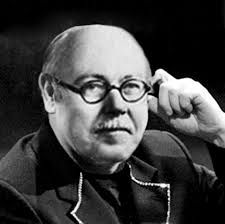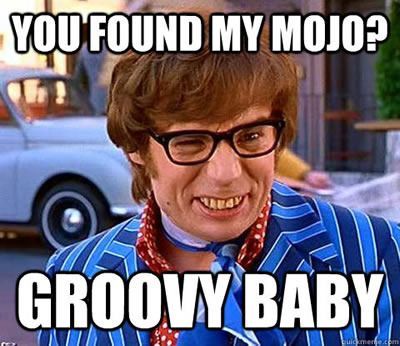Claude Hopkins: The Untold Story of How One Man Transformed Marketing Forever
Cut the crap and get back to focusing on what really matters

Introduction
Claude Hopkins is a name you might not hear much these days, but if you're in the business of marketing and don’t know who he is, it’s time for a history lesson. The guy practically invented the rules that drive modern marketing—and did it over a century ago. Hopkins didn’t just dabble in creative slogans or fancy branding. No, this bloke made advertising a science. He understood that good marketing isn’t about looking clever; it’s about selling, plain and simple. And let’s be honest, most modern marketers would rather sound impressive to each other than to their customers.
Whether you’re running an in-house marketing team or part of a marketing agency, one rule still holds true: if you don’t understand the customer—or your customer’s customer—you’re missing the mark. Yet many in the industry have forgotten this core principle in favour of jargon-filled strategies that are more about chest-thumping than results.
Despite all his contributions, much of what Hopkins pioneered has been chucked out in favour of buzzwords, shiny nonsense, and the need to sound ‘professional’. While today’s marketers and agencies are busy revving their metaphorical engines, let’s take a moment to remember the man who transformed marketing forever—and why his ideas still matter, especially when you consider modern-day advocates like Marcus Sheridan, who’s channelled the spirit of Hopkins through his They Ask, You Answer philosophy.
Who Was Claude Hopkins?
Before we dive into how he changed the marketing world, let’s meet the man. Born in 1866, Hopkins didn’t exactly start life with a silver spoon. He worked his way into advertising after humble beginnings, and once he was in, he didn’t waste time in shaking things up. His big break came at Bissell Carpet Sweeper Company, where he applied a simple, but novel concept: give the people what they want.
Hopkins’ philosophy was simple: advertising should be tested, results should be measurable, but above all, it should focus on the customer. Forget vague, flowery language or making the brand sound exclusive. Hopkins believed you should tell people why they need your product and prove that it works. His simplistic approach was a breath of fresh air in a world full of bloated, self-important marketing.
The Game-Changing Methods of Claude Hopkins
So, what made Hopkins such a game-changer? Let’s break it down.
Customer-Centric Marketing
Unlike many of today’s marketers—both in-house and at agencies—Hopkins understood one golden rule: it’s not about you, it’s about the customer. And, if you're an agency, it’s not just about your customer—it’s about their customer. People don’t care how clever your marketing sounds; they care about how your product solves their problems. And that’s exactly what Hopkins did. He focused on the consumer’s needs, not the brand’s ego.
And speaking of understanding the customer, Marcus Sheridan’s They Ask, You Answer builds on this very foundation. Sheridan’s approach focuses on answering the real questions customers have—straightforward, honest, and to the point—just as Hopkins did over a century ago. It’s all about providing value, not fluff.
Proof-Based Advertising
In Hopkins’ world, every claim needed backing up. He knew that consumers are sceptical, so he used evidence—testimonials, samples, and data—to prove the product worked. None of that "we’re the best in the business" fluff that’s everywhere today. No, Hopkins would tell you exactly why the product was better, and he’d make damn sure you believed it.
And that’s something modern marketers, especially marketing companies, need to remember. You’ve got to give your customer’s audience real reasons to believe in the product or service—not just vague claims or buzzwords.
‘Reason-Why’ Copywriting
Ever heard of ‘reason-why’ copy? Hopkins pioneered this. Instead of trying to wow people with flowery language or trendy buzzwords, he kept it simple. He gave consumers a solid reason to buy: “Here’s why this product works, and here’s how it benefits you.” Simple, right? You’d think today’s marketers would catch on, but it seems they’d rather impress each other with how many syllables they can cram into a sentence.
Sampling and Coupons
Hopkins was also behind some of the earliest and most successful sampling campaigns. He realised that the best way to convince someone to buy something is to let them try it for free. He introduced coupons and free samples to get products into people’s hands, proving their value first. It worked like a charm, because when people got a taste of what he was selling, they came back for more.
Measurable Success
One of the things that set Hopkins apart was his obsession with measurable results. He wasn’t content with “awareness” or “brand recognition”—he wanted numbers, cold hard data. And if something didn’t work, he’d test, tweak, and test again until it did. It’s what we now call A/B testing, but back in the early 1900s, it was revolutionary.
Brands Hopkins Made Unstoppable
It’s all well and good to talk about Claude Hopkins’ theories and methods, but let’s get real for a second—what did the bloke actually achieve? The answer is: a lot. He didn’t just leave his mark on the advertising industry; he helped turn everyday products into household names. Here are a few examples of how his genius turned simple products into cash cows:
Pepsodent: The Toothpaste that Changed Smiles Forever
Before Claude Hopkins got involved, toothpaste wasn’t exactly flying off the shelves. People didn’t really see the need for it. Enter Hopkins. He took a product that had been languishing in obscurity and created a campaign that not only convinced people they needed to brush their teeth, but that they needed Pepsodent specifically. How did he do it? By focusing on something people could see and feel: the removal of “the film” on teeth. That little bit of marketing magic sent sales soaring and helped Pepsodent become one of the most successful brands in oral care at the time.
And let’s be honest—Hopkins pretty much introduced modern dental hygiene to the masses. The guy sold toothpaste, but what he was really selling was the idea of a bright, healthy smile. That’s the kind of genius we’re talking about here.
Palmolive Soap: More Than Just Suds
Before Palmolive was a global skincare brand, it was just another bar of soap. But when Claude Hopkins took on the challenge, he transformed it into something more. He focused on the key ingredients—olive oil and palm oil—and marketed the soap as a luxurious, skin-softening product. This wasn’t just soap; it was self-care before the term even existed.
Hopkins’ clever angle? He played up the ancient, natural ingredients, giving the product a rich backstory that appealed to consumers looking for more than a simple scrub. Thanks to him, Palmolive went from an unknown bar of soap to a leading beauty product in households everywhere.
Schlitz Beer: When Clarity Meets Sales
Now, you wouldn’t think selling beer would be a tough gig, but in the early 1900s, Schlitz was struggling in a crowded market. That’s when Hopkins stepped in and did what he does best—he focused on the customer’s needs. Schlitz was already making great beer, but nobody knew why it was great. Hopkins took a tour of the brewery and learned about the meticulous process behind each batch—the purity of the water, the sterilisation of the bottles, the use of carefully chosen hops.
So what? All beer companies did this… but no one was talking about it. Hopkins turned the brewing process into a story of purity and craftsmanship, and Schlitz went from just another beer to the best-selling beer in America. Not because it was better, but because Hopkins knew how to make the customer believe it was.
Bissell Carpet Sweeper: Cleaning Up the Competition
Back in the day, carpet sweepers were a bit of a luxury item. Most people weren’t convinced they needed one. That changed when Claude Hopkins worked his magic on the Bissell brand. He didn’t just advertise the product; he demonstrated its effectiveness in a clear and measurable way.
Hopkins understood that people needed to see the value of the product with their own eyes. So, he set up demonstrations to show how much dirt and dust the sweeper could remove. This simple yet effective tactic turned Bissell into a household name, making it the go-to brand for keeping floors spotless. Again, the focus was always on solving a problem for the customer—something a lot of today’s marketers could learn from.
The Legacy of Claude Hopkins
Hopkins’ legacy lives on in direct response marketing—the idea that every ad should elicit a measurable response. Whether it’s a voucher redeemed, a sample requested, or a sale made, Hopkins believed in tracking every action to see what worked. Sound familiar? That’s because his methods laid the groundwork for modern marketing, particularly the kind you see online today.
A/B testing, customer testimonials, even the copywriting you find in sales pages—all of it stems from Hopkins’ work. But despite this legacy, most of what he taught has been forgotten in favour of… well, sounding clever.
And that’s why Marcus Sheridan’s They Ask, You Answer resonates so strongly in today’s world. Sheridan, like Hopkins, is all about understanding the customer and delivering real answers to their questions. It’s simple, it’s effective, and it’s a direct descendent of Hopkins’ no-nonsense, customer-focused methods.
Modern Marketing: A Lost Art?
Let’s face it. Hopkins' customer-focused approach has all but disappeared in today’s marketing world. Whether we’re talking about internal marketing teams or marketing agencies, the emphasis has shifted to jargon, buzzwords, and, to be frank, a lot of verbal masturbation. Modern marketers seem more interested in impressing each other than actually engaging with customers—or more importantly, their customers' customers. It’s become a dick-swinging contest, with everyone trying to outdo each other by using the latest trendy terms or overly complicated language.
Today’s marketing doesn’t solve customer problems; it’s more of a show-off fest. Sure, they’ll tell you about "disruptive paradigms" or "next-gen solutions," but ask them to explain how the product benefits you, and they’ll probably hand you a 10-page whitepaper filled with corporate buzzword soup, that doesn’t even begin to address the questions being asked. (It’ll look pretty though.)
The Result: Complicated, Impersonal Marketing
What’s the result of all this nonsense? Overcomplicated, impersonal marketing that completely misses the mark. Consumers are left scratching their heads, wondering what the hell these companies are even trying to sell. The power of simplicity is lost in the scramble to sound important.
Hopkins knew that customers didn’t care about how sophisticated the marketing sounded; they wanted to know how the product would make their lives easier, cheaper, or better. Today, that core principle is often forgotten. Instead, we get fancy words, shiny graphics, and a lot of noise.
Lessons for Modern Marketers
It’s time for a reality check. Modern marketers—both in-house and in agencies—could learn a thing or two from Claude Hopkins. Here’s what they need to remember:
Return to Customer Focus
Stop trying to impress your peers, and start focusing on your customers. And if you’re a marketing agency, for the love of God, please focus on your customer’s customer. Hopkins knew that the best marketing speaks directly to people’s needs. So, drop the jargon and get back to basics. Ask yourself: how does your product solve a problem? Or better yet, how does your customer’s product solve their customer’s problem? That’s all people care about.
The Power of Simplicity
Simplicity is key. Instead of filling your copy with technical jargon and buzzwords, explain your product in clear, straightforward terms. If you can’t explain it simply, you don’t understand it well enough. And remember Marcus Sheridan’s They Ask, You Answer—it’s the modern-day version of this principle.
Measure Everything
Hopkins’ obsession with measurable success is still relevant today. If you’re not tracking results, how do you know what’s working? Test everything, and don’t be afraid to change tactics when something isn’t delivering.
Conclusion
Claude Hopkins revolutionised marketing by putting the customer first, using proof-based advertising, and relentlessly measuring results. His ideas aren’t just a footnote in marketing history—they're still relevant today. The problem is, modern marketers—both teams and agencies—have forgotten that it’s the customer, not the buzzwords, that matters.
And that’s why we need more marketers following in the footsteps of people like Marcus Sheridan, whose They Ask, You Answer method is a 21st-century homage to Hopkins’ work.
So, the next time you’re tempted to throw around fancy terms like “omnichannel synergy” or “scalable solutions,” take a step back. Ask yourself: what would Claude Hopkins do? He’d likely tell you to cut the crap and get back to focusing on what really matters—solving customer problems and proving your product works.
Because at the end of the day, that’s what marketing should be about.






